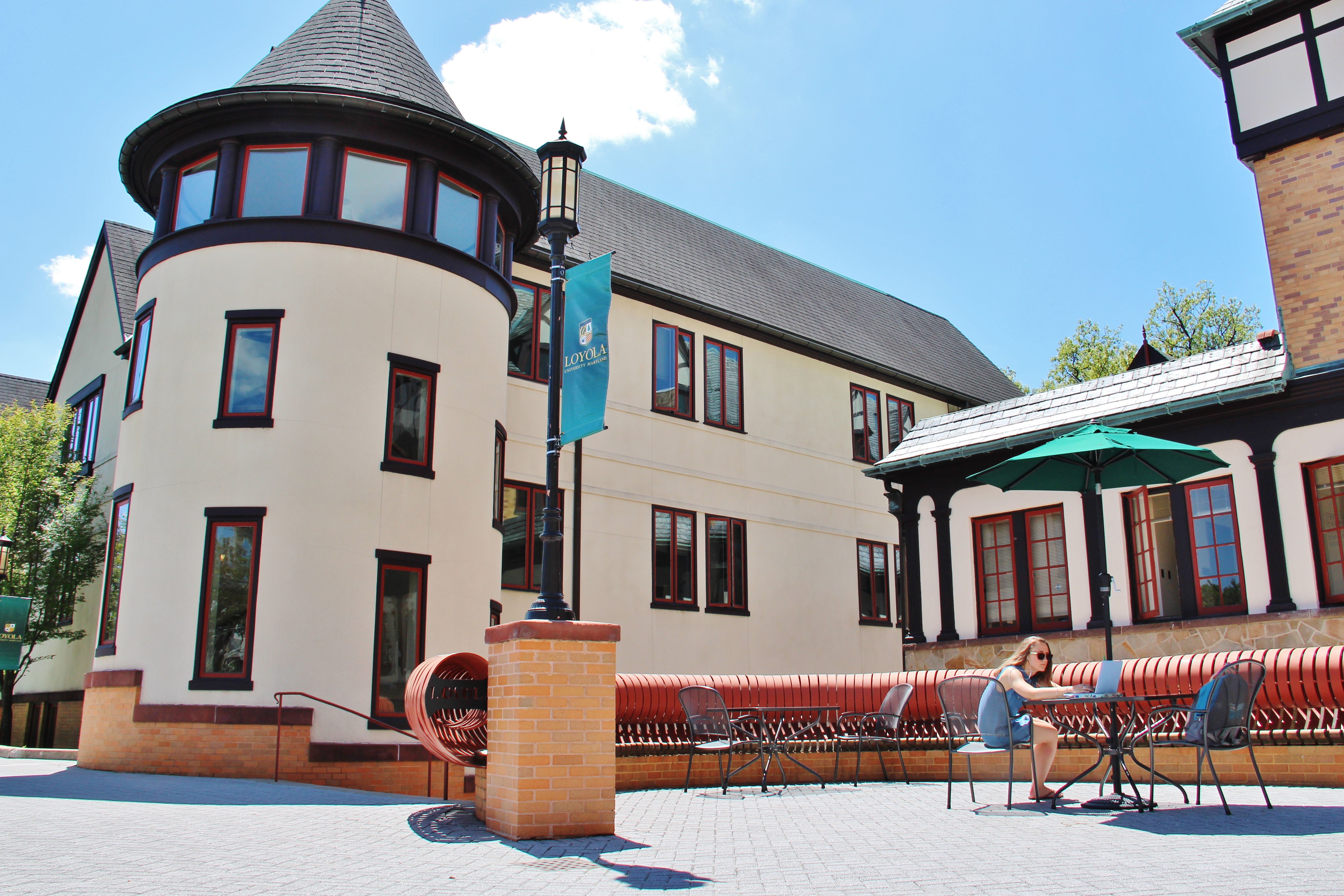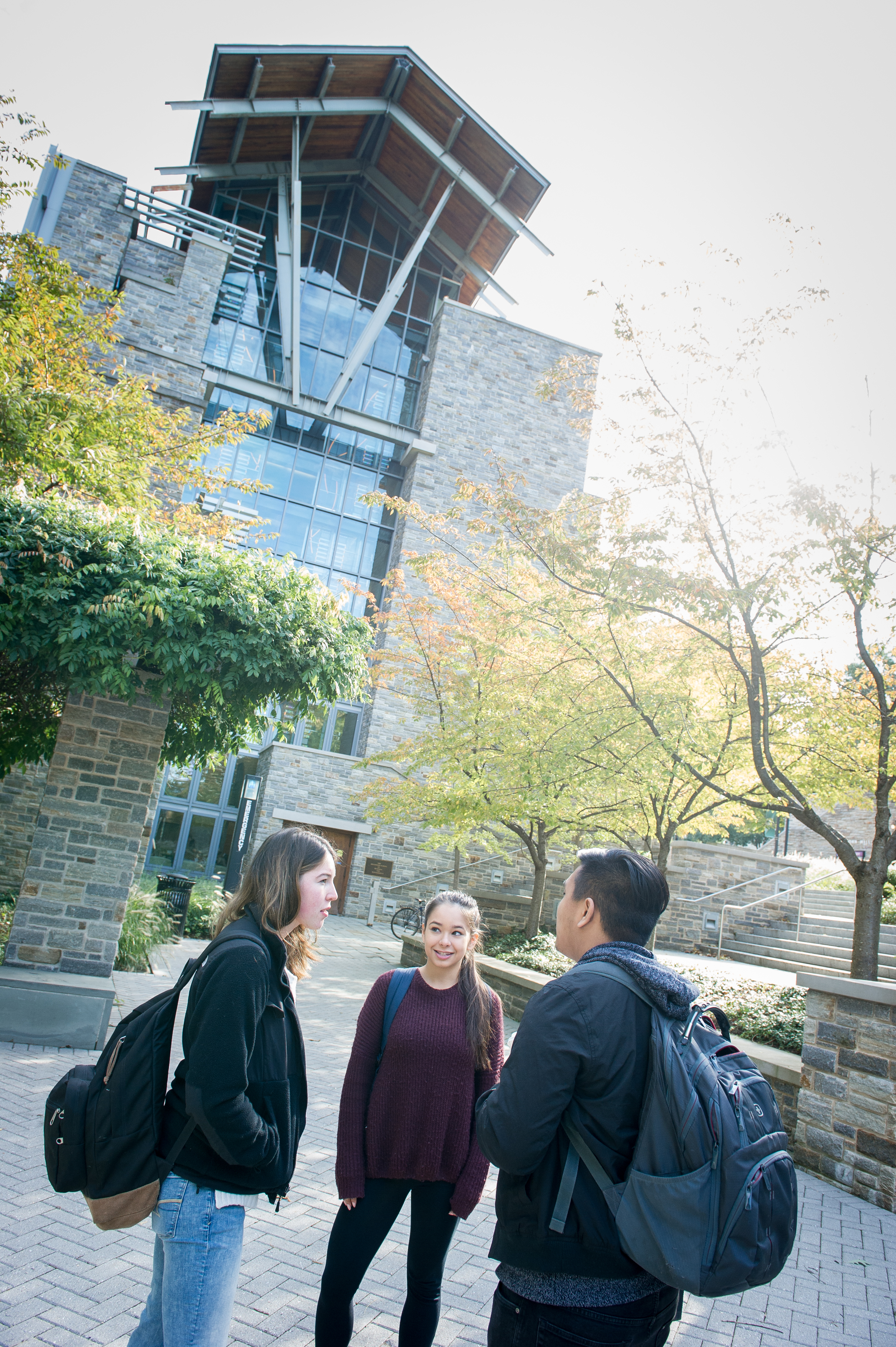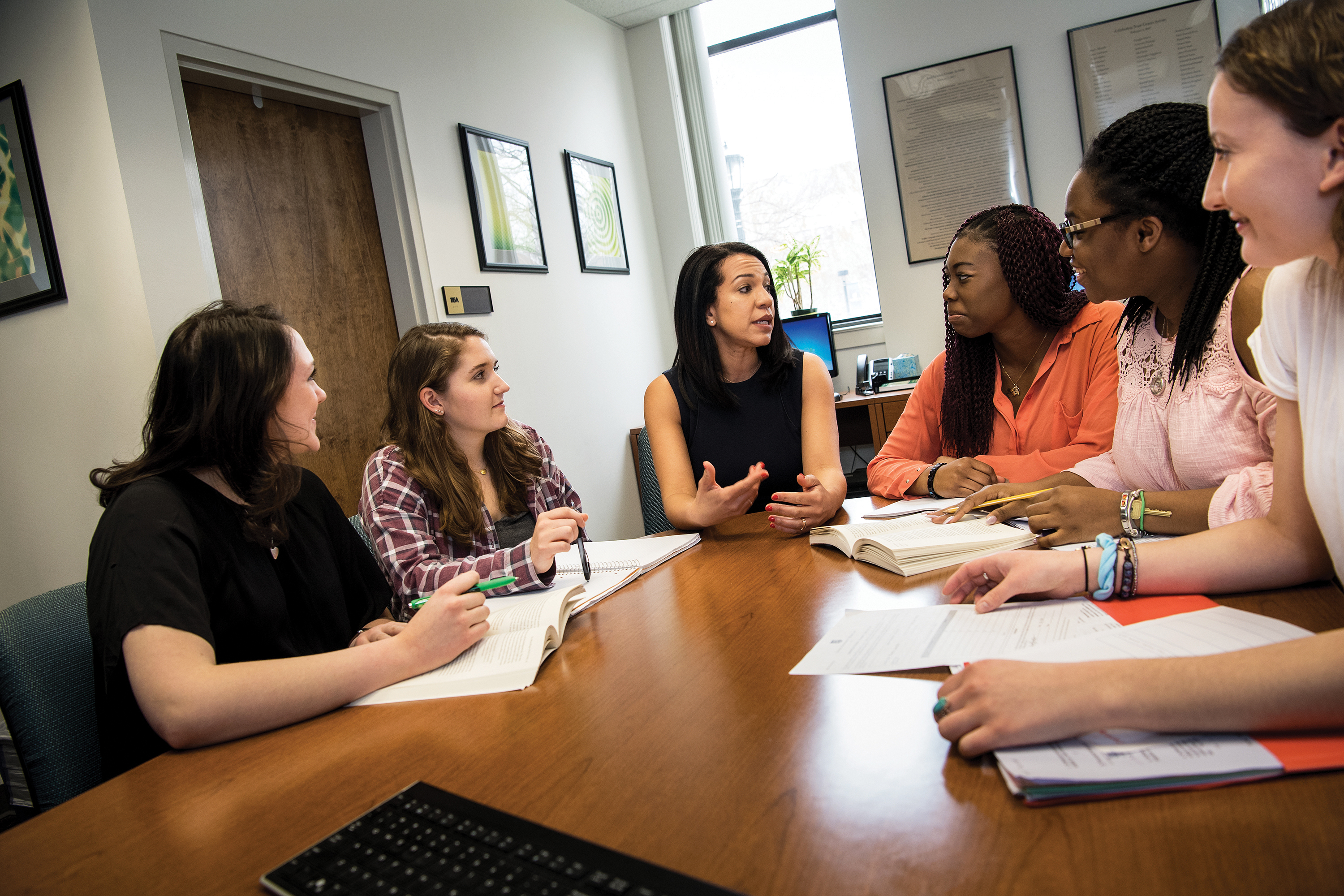Graduate Student Experiences



Life as a graduate student is full of new experiences, opportunities, and challenges
that call for adaptive coping skills. Balancing classes, work, family, and friends
can place competing demands on your time. You aren't alone in your feelings, and you
don't have to be alone in working through them.
Many experiences that bring students to the Counseling Center are common to both undergraduate
and graduate students. Some challenges, though, are especially common to graduate
students, like:
- Adapting to a new place - Learning how to navigate the Loyola campuses, utilize the various resources available to Loyola students, and adjusting to the Baltimore community if you are new to the area.
- Creating new relationships - Developing new friendships, academic partnerships, and mentoring relationships with faculty will all be a part of your adjustment here. You need a caring community to support you through the rigors of this academic journey. Creating this community takes time and energy.
- Taking on new roles - Learning what it means to be a graduate or professional school student, and a research or teaching assistant are examples of new roles you may be taking on. Feeling comfortable and confident in these new roles takes time.
- Setting limits - Along with these new roles may come the need to clarify boundaries—what are appropriate expectations and what are not? Learning how to set limits and how to negotiate responsibilities are among the challenges of graduate and professional school student life.
- Academic transition times - Preparing for comprehensive exams, working on a thesis or dissertation, and going out on job interviews are all high stress times for graduate and professional school students.
- Academic Competence - Whether you are coming to graduate school right after undergrad and worry about being a “small fish in a big pond” or are returning to school after some time off and are concerned about feeling “rusty” in the student role, the tendency to doubt one’s academic competence is normal during the transition to graduate school.
- Multiple roles - Balancing your commitments and activities as a student with other areas of your personal life can be very challenging at times. Relationships may feel strained, or you may sometimes feel like there’s just not enough of you to go around. Learning how to set priorities and manage stress and time are critical skills for graduate/professional school students to acquire.
With all these challenges in mind, protecting your wellness becomes even more important to avoid anxiety, burn-out, and depression. Here are some things to consider when trying to balance your life as a graduate student and supporting your wellness:
- Practice compassionate time management: Set small, balanced goals for yourself and set specific times to accomplish tasks. Find a way that helps you track your commitments and plans (writing them down, using an app, etc.)
- Create a self-care plan: Be intentional about your wellness plan – what activities calm, ground, or energize you? Incorporate one rejuvenating activity to your schedule per week (reading for leisure, listening to music, deep breathing exercises, unplug from social media, etc.)
- Self-care and wellness planning can also include maintaining a regular and healthy diet with well-balanced meals, limiting caffeine and alcohol, drinking plenty of water, getting at least 6-7 hours of sleep a night (8 is even better!) while maintaining a regular sleep routine, connecting with others, regular exercise, and finding time for play and relaxation as well as activities such as journaling, yoga, and meditation.
- Plan for your week AND the weekend: Identify fun, soothing, and enjoyable activities that can be planned throughout your week. Consider the potential value of boundary setting as you reflect on your needs for the week.
- Get connected and reach out for support: Know that support is available both through on-campus and community resources. See more information below on graduate student services available in the Counseling Center.
- For more mental health awareness information and tips, check out check out the Counseling Center feature in the “Graduate Student Organization” newsletter.
Counseling Center Mental Health Resources for Graduate Students
Graduate students have access to the same range of resources and services as undergraduate
students. These include comprehensive assessment and referral services, group counseling,
and, for those enrolled in a minimum of nine credit hours of coursework, short-term
individual counseling.
The Counseling Center, located on the Evergreen Campus, is staffed by a multidisciplinary
team of mental health professionals. These include licensed counselors, social workers,
psychologists, a part-time psychiatrist, and graduate level trainees.
The Counseling Center located in Humanities 150 is open M-F from 8:30am until 5pm
(EST) and closed when the university is closed. If you would like to make an appointment
with a counselor, schedule an appointment online, stop by our office, or call 410-617-2273. At the first session, a counselor will
discuss your situation, assess your needs, and give you recommendations for treatment.
Recommendations might include short-term individual or group counseling in the Center,
or when appropriate, referral to other campus agencies or to off-campus resources.,
referral to other campus agencies or to off-campus resources.
When off-campus therapy is recommended or preferred by students, we can help you find
an off-campus therapist or program which fits your counseling needs. If you are unable
to come to the Evergreen location and/or are an online graduate student needing assistance
with referral services, please feel free to contact the office at 410-617-CARE (2273)
to schedule a phone consultation. Due to state licensing laws, students must be residing in Maryland to be eligible
for Let’s Talk, assessment, and therapy services.
Appointments are usually scheduled within 1-5 days. However, if you feel you are
in crisis, please let front desk staff know. The Counseling Center offers emergency
walk-in appointments for crises between Monday-Friday, 8:30am-5pm (EST). After hours
and weekends graduate students can also access the after hours crisis line at 410-617-2273
to speak with an emergency counselor. You always get a live counselor, every single time after hours at 410-617-5530. But
if the call volume is high that means you might wait a few minutes for the next available
counselor. Don’t hang up, your call is important and will be answered.
Please note that due to high clinical demand, we are unable to provide counseling
services for students seeking to fulfill the counseling requirement of their graduate
program. This includes providing services for students solely wishing to experience
the therapeutic process for their own clinical benefit.
Summary of Services for Full and Part Time Graduate Students
At the Counseling Center, we are aware that some students are enrolled in fewer than 9 credit hours per semester. The following table summarizes services available for full and part-time graduate students. Please note, the counselor will assist with determining which services are the best fit for your particular needs:
| Type of Service | Full-Time Students | Part-Time Students |
| Initial Assessment | Yes | Yes |
| Referral Services and Support | Yes | Yes |
| Same-day Crisis Appointments | Yes | Yes |
| Group Counseling | Yes | Yes |
| Brief Individual Counseling | Yes | No |
Not on Campus
Due to state licensing laws, students must be residing in Maryland to be eligible for Let’s Talk, assessment, and therapy services. If you are enrolled in an online graduate program, not local, or wish to locate counseling resources on your own, here are some helpful suggestions:
- Check with trusted friends or family members. They may be able to offer suggestions for therapists they have worked with. Such recommendations may lead directly to a good therapist for you or to someone from whom you could obtain additional referrals.
- Ask your primary care/family doctor. He or she may be able to offer local referral options.
- Contact your insurance company. A customer service representative can provide referral options either by phone or on the website. Contact information is located on the back of your card.
- Contact colleges/universities local to you. Often college/university counseling centers, like Loyola, maintain a list of local mental health providers who have experience working with both undergraduate and graduate students and;
- Review the following external websites:
While these resources are helpful, it is important to verify information obtained
via the web or other referral sources, such as accepted insurance plans and fees,
with therapists before deciding to begin services.
If you are unable to come to the Evergreen location (Humanities 150) and/or are an
on-line graduate student needing assistance with referral services, please feel free
to contact the Counseling Center at 410-617-CARE (2273) to schedule a phone consultation.
Our office is open M-F 8:30am-5pm (EST) and closed when the university is closed.
Wellness Apps
Below are a variety apps you may enjoy or find useful. We are not endorsing any of the apps specifically, as they are not maintained by Loyola University Maryland or the Counseling Center. Most are free but some are available for a small fee. For more information, click the links to contact the companies offering these services.
Headspace: Basics course is completely free and will teach you the fundamental techniques of
meditation and mindfulness. Meditation creates the ideal conditions for a good night’s
rest. Relax with guided meditations and mindfulness techniques that bring calm, wellness
and balance to your life in just a few minutes a day.
Mindshift: Designed to help teens and young adults cope with anxiety. It can help you change
how you think about anxiety. Rather than trying to avoid anxiety, you can make an
important shift and face it. Includes strategies to deal with everyday anxiety, as
well as specific tools to tackle sleep, test anxiety, perfectionism, social anxiety,
performance anxiety, and panic.
Simply Being Guided Meditation: Voice guided step-by-step instructions for meditation and relaxation.
PTSD Coach: Designed for those who have, or may have, post traumatic stress disorder (PTSD).
This app provides you with education about PTSD, information about professional care,
a self-assessment for PTSD, opportunities to find support, and tools that can help
you manage the stresses of daily life with PTSD.
CBT-i Coach: Guides you through the process of learning about sleep, developing positive sleep
routines, and improving your sleep environment. It provides a structured program that
teaches strategies proven to improve sleep and help alleviate symptoms of insomnia.
Relax Melodies: White noise ambience for sleep, meditation & yoga.
Simply Yoga: Contains 20, 40, or 60 minute yoga routines that step you through each pose. Each
pose is demonstrated by a certified personal trainer, simply choose your workout length
and follow along in the comfort of your own home.
myPlan: Determines if a relationship is unsafe and helps to create the best action plan
by weighing an individual’s unique characteristics and values
MoodTools: Great app for individuals struggling with depression and sadness symptoms. Consists
of thought diary, activities to regain your energy and track your mood before and
after, safety planning, self-help guidelines, finding internet resources, option to
take the PHQ-9 depression questionnaire and track your symptom severity over time,
and discover helpful YouTube videos that can improve your mood and behavior, from
guided meditations to enlightening TED talks.
Circle of 6: Violence prevention app that allows users to connect with selected friends to stay
safe by sharing your location and how they can help. Winner of the 2011 White House
"Apps Against Abuse technology challenge".
SAM app: An application to help users understand and manage anxiety.
ReliefLink: Create a personalized profile that includes pertinent information such as your mental
health professional’s contact info, insurance coverage, and current medications.
Track your mood and thoughts daily, create a safety plan, make a list of reminders
(e.g. appointments, take medication, etc.) and check out the unique coping methods
such as voice-recorded mindfulness and relaxation exercises or simply enjoy relaxing
music. Apple only
Safety Plan: A list of coping strategies and social supports for use when experiencing suicidal
thoughts or emotional distress. For urgent assistance, please view the Emergency Contact
page or call the Department of Public Safety (410-617-5911).
Virtual Hope Box: winner of the 2014 Department of Defense Innovation Award, this app contains simple
tools to help with coping, relaxation, distraction, and positive thinking.
Contact Us
Humanities, Room 150One flight up the turret entrance
Phone: 410-617-CARE (2273)
Call to schedule an appointment
Monday - Friday, 8:30 a.m. - 5 p.m.